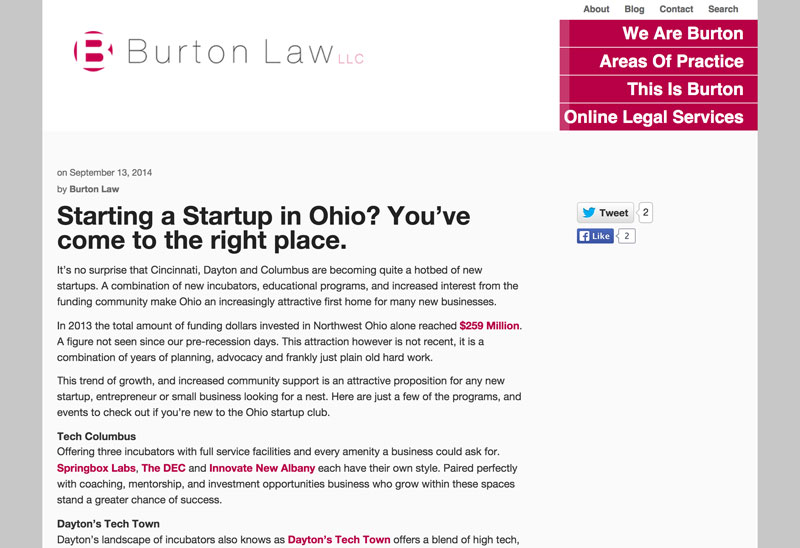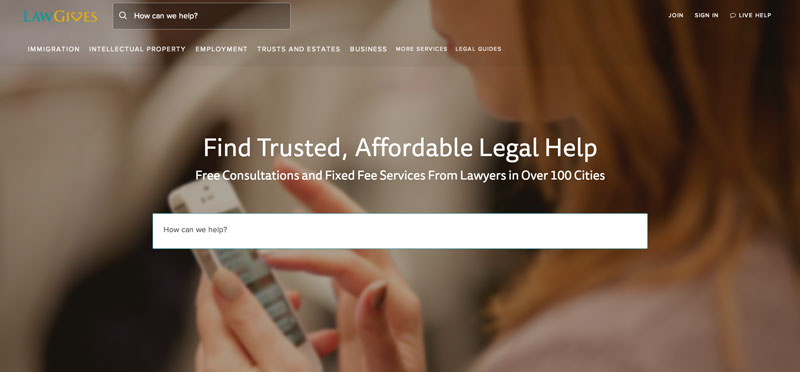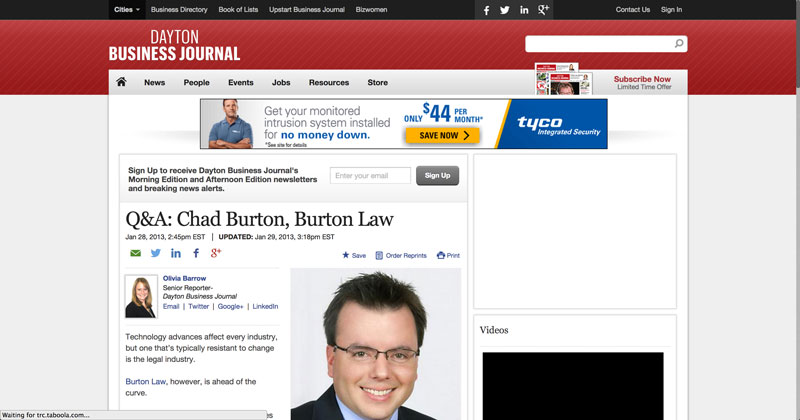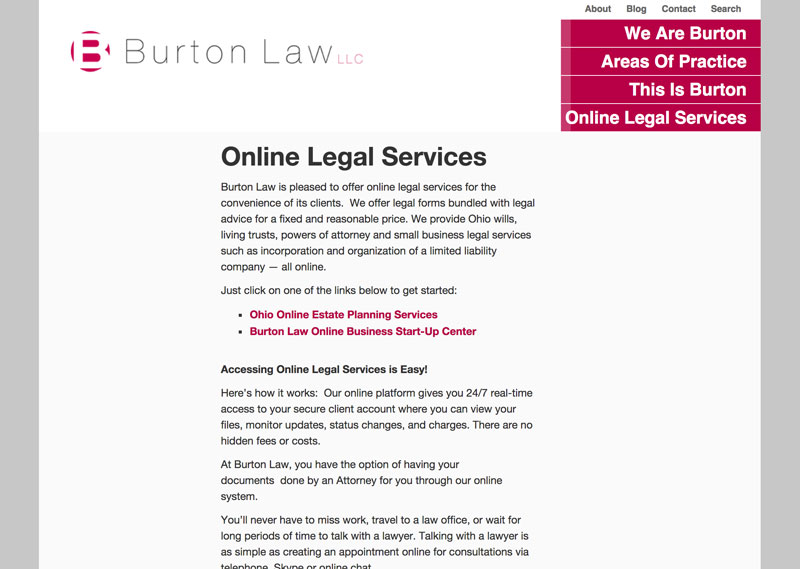A growing roster of routine services is offered for fixed fees and delivered entirely over the internet.
Chad Burton is founder of a law firm that has five attorneys in four cities, but no support staff and not a single square foot of office space that the firm can call its own. Burton Law LLC (http://www.burton-law.com/) is a “virtual law firm,” headquartered at Burton’s home in Dayton, Ohio. The other attorneys also work out of home offices, an arrangement that “greatly reduces overhead and inefficiencies associated with the traditional firm model,” the firm’s web site declares, yielding cost savings that “ultimately get passed on to our clients.”
Burton Law uses a cloud-based law practice management platform, Clio (http://www.goclio.com), to handle an array of office functions from calendaring to billing. Attorneys with the firm will meet personally with clients, if necessary. They handle litigation as well as transactional work. So they do, on occasion, don business attire and head to their clients’ places of business or to court. But Burton Law, which specializes in business start-ups, estate planning and dispute resolution, is set up to handle as much work as possible, from client intake to document delivery, over the Internet. The firm has “dismantled the traditional law firm model and turned it on its head,” the web site declares.

Unusual Model is Attention-Getter
So how does Burton market such an unconventional law practice? “A lot of it has a traditional marketing feel to it,” he says. “We try to keep a good web presence. We also do what lawyers have been doing for years to develop practices, by building relationships.” But the novel structure of the firm itself has certainly helped put Burton Law on the map.
“We get a lot of web site traffic from organic search and in more nontraditional ways just because of the nature of our firm,” explains Burton, who sought to capitalize on that with a tongue-in-cheek blog post earlier this year.
The post, which noted that the firm takes pride in describing itself as “innovative, disruptive and any other fancy term that describes a culture of change in the legal profession,” would soon be launching a service to deliver printer ink to its clients with a fleet of drones. Posted soon after Amazon announced that it was working on a system to deliver packages with robotic “octocopters,” the spoof got the Burton Law website a flurry of extra hits.

A steadier stream of traffic comes from Burton’s full calendar of appearances at bar events. “I do a lot of speaking engagements around the country, and that magnifies our web presence,” says Burton. “The talks I give are about law practice management and legal technology and emerging law models, never on the substance of law. That is sad but okay at the same time. We seem to be everywhere, and that helps drive awareness for us.”
Selling Fixed-Fee Services
Once potential clients get to the firm’s front door, which is to say, its website, the pitch for their business takes on a decidedly more unconventional turn. Those in need of a routine legal service such as drafting a will or a living trust, or starting a corporation or limited liability company, can get started right away online, and can complete the process for a fixed fee with help from a Burton Law lawyer, delivered entirely through the Internet.

The web site’s online intake and fixed-fee service interfaces are about to get a lot more sophisticated, Burton said in an interview in early October. Burton Law will be launching a pilot program in conjunction with a web portal called LawGives.com (https://www.lawgives.com/) to match potential clients with a suitable lawyer with the firm, who will be able to meet the client’s need for a fixed fee. That portal at present serves a consortium of member attorneys scattered around the country. “We will be the first law firm with a closed group,” says Burton. “People will enter basic information about their needs, and it will use pretty sophisticated algorithms to match them up with one of our lawyer’s profiles and contact information. Then there will be a quick exchange on the back end between the lawyer and the client. So it is something that is people-driven, not technology-driven, to make sure that at least on its face, there is a good fit between the lawyer and client.”
Burton adds, “It will be a different way of getting in the door, so to speak. A lot of our online presence will help push clients to that. It is going to be a new marketing tool that we will be rolling out very soon.”
Burton acknowledges that the firm’s fixed-fee menu of services is a work in progress. “It is a selling point, but we are still in the early stages of figuring out the concept of alternative fee discussions,” he says. “More complicated transactions and litigation do not always lend themselves easily to fixed fees or alternative models as opposed to hourly billing, so there is still a lot of exploration going on. But it is a good way to think differently about providing legal services and assuring efficiencies.
That does not mean the firm will or can offer cut-rate services. “My rate is probably half of what it would be if I were at a larger firm, but it is comparable with the rates charged by firms of our size in our locations,” says Burton. “We are not in a race for the bottom, by any means.”

Social Media Marketing
Having been able to garner lots of publicity simply be being an early example of a web-based model for a law firm, Burton Law has had less need for traditional web- or print-based advertising, and has done little of it. The firm has occasionally helped sponsor bar events to promote “brand awareness.” Burton says. “We have also tried out different things on the social media front,” through Twitter Facebook, Google Plus and LinkedIn, and with posts to the firm’s own blog, he says. But he is skeptical that the firm’s own social media efforts can have much of an impact.
“I think it’s important to have that presence for the firm. But there are just so many brands on Facebook and Twitter, and everybody’s getting so much stuff shoved in their face. I think we get the most bang for the buck on social media through the individual presence of our attorneys. Where I have seen impact is when I have personally used social media to strengthen existing relationships,” says Burton.
He is friends on Facebook with lawyers, judges, clients, business people, and people in the legal technology space he works with, as well as with distant relatives and high school acquaintances. “Even if I am not sharing or engaging about the law or legal technology issues, there are still connections that are going on there,” he says. Those connections can be as seemingly trivial as the ribbing he recently got from his diverse network of Facebook friends when he replaced his profile pictures with a vintage photo of himself. “That generated comments from people I serve on boards with, lawyers around the country, clients and people who are potential clients. They were mostly just giving me a hard time about the picture, but that is creating engagement. It sounds silly, but I think it is effective, and it is fun.”
No Concern from Clients about Online Model
Clients in this day and age aren’t the least bit wary of doing business with a virtual law firm, Burton insists. “We have not seen any pushback or questioning on the client side at all,” he says.

No wonder. An online-only business “is new to the legal industry, but every other industry has been doing this in different forms for years,” Burton says. “It has become more normalized, and it is forcing its way into the mainstream of law.”
Clients, of course, have concerns about the security of information they provide online. “But that is becoming less and less of an issue for clients,” he says. “I think it is becoming less of a concern because privacy and security is such a front and center issue for all of these platforms in the legal market,” including Clio and LawGives, on which Burton Law is based. “They have their eye on the ball. They have to, otherwise they would be out of business,” Burton says



